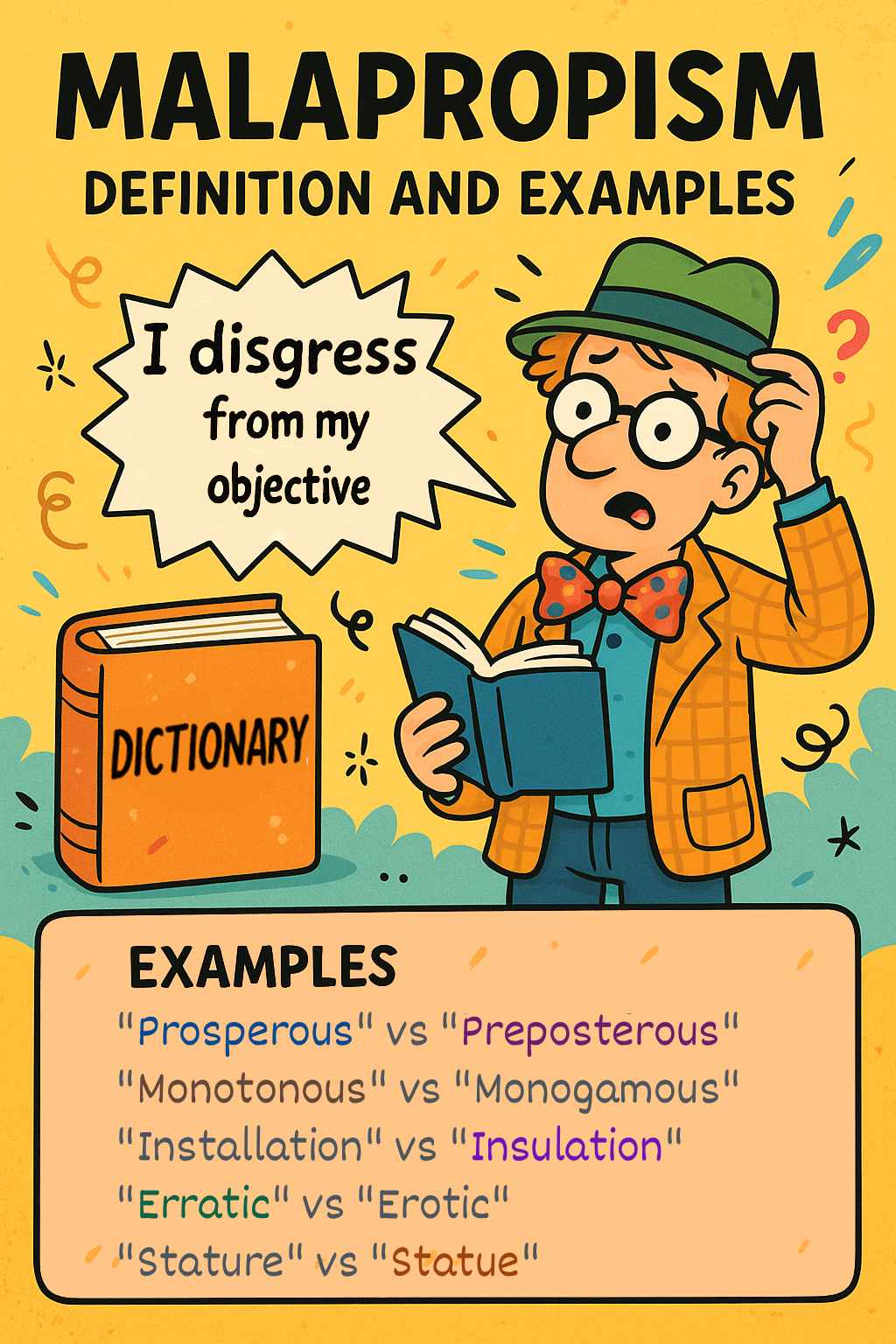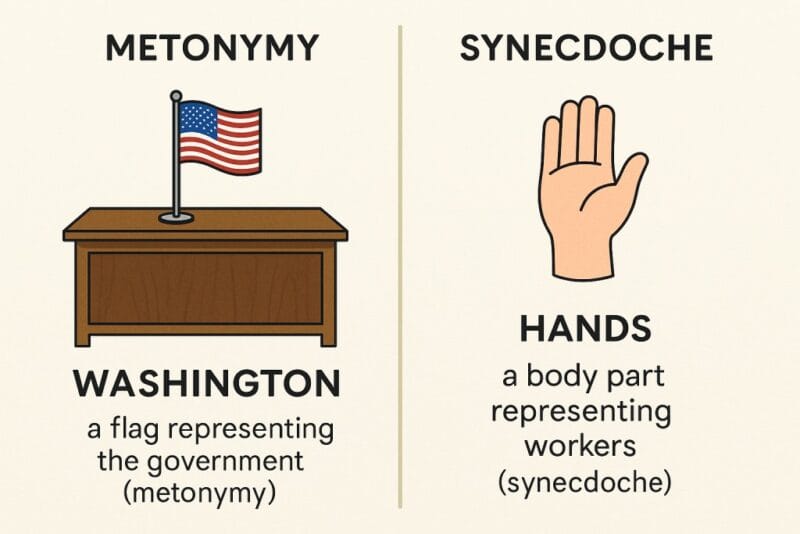A malapropism occurs when a speaker mistakenly uses a word that resembles another in sound but differs in meaning, often producing an unintentionally comic effect. The term comes from Richard Brinsley Sheridan’s play The Rivals (1775), where the character Mrs. Malaprop frequently misuses words in her speech. Her blunders, such as declaring someone “the very pineapple of politeness” instead of “pinnacle,” gave the phenomenon its name. It is a form of verbal error that highlights the slipperiness of language, where sound and meaning intersect in ways that can confuse, amuse, or both.
Origins of the Term
The word “malapropism” has its roots in the French phrase mal à propos, meaning “inappropriate.” Sheridan’s Mrs. Malaprop embodied this principle, consistently misapplying elaborate vocabulary in ways that undermined her authority. Since the eighteenth century, the term has been used to describe similar slips in speech, whether intentional in literature or accidental in everyday conversation.
Malapropism in Literature
Malapropism is not confined to Sheridan. Writers across periods have employed the device to develop characterization, inject humor, or reflect misunderstandings within dialogue.
- William Shakespeare: Before Sheridan coined the term, Shakespeare gave us characters prone to verbal blunders. Dogberry in Much Ado About Nothing (1598) famously declares: “Our watch, sir, have indeed comprehended two auspicious persons.” Here, Dogberry means to say “apprehended two suspicious persons,” but mistakenly uses “comprehended” and “auspicious,” creating a humorous effect due to the incorrect word choices.
- Mark Twain: In Adventures of Huckleberry Finn (1884), Twain peppers dialogue with misused words that capture the rhythm of regional speech. Characters misuse terms in ways that convey both humor and authenticity.
- Modern Literature: Contemporary fiction and satire often employ malapropism to expose pretension or social awkwardness and show that the device retains relevance across centuries.
Malapropism Examples in Everyday Language
Beyond the stage or page, malapropisms surface in casual conversation and public speech. They often reveal the gap between intention and execution when someone reaches for a “big” word. Common examples include:
- Saying “illiterate him from your memory” instead of “obliterate.”
- Declaring something a “fire distinguisher” instead of “fire extinguisher.”
- Saying “Texas has a lot of electrical votes” instead of “electoral votes.”
Such blunders may appear minor, but they expose how easily the human ear confuses phonetic similarity with semantic accuracy.
The Function of Malapropism in Writing
Malapropism in writing serves several functions:
- Comic relief: By spotlighting linguistic errors, writers generate humor that springs from the clash between sound and sense.
- Characterization: Malapropisms reveal a speaker’s personality, whether pompous, confused, or overly ambitious with language.
- Critique of pretension: Writers often use malapropism to satirize individuals who attempt to sound sophisticated without mastering their vocabulary.
Malapropism and Miscommunication
While often humorous, malapropism also demonstrates the fragility of communication. A misplaced word can alter perception, obscure meaning, or inadvertently expose the speaker. This dual nature (comic yet communicatively misdirecting) explains why malapropism remains a lasting subject in discussions of language and literature.
Related Terms: Freudian Slip, Spoonerism, and Catachresis
To better situate malapropism, it helps to distinguish it from other linguistic missteps:
- Freudian Slip: An error that reveals unconscious thoughts rather than confusion over vocabulary.
- Spoonerism: The accidental swapping of sounds or syllables, as in saying “you have hissed the mystery lectures” instead of “missed the history lectures.”
- Catachresis: The deliberate misuse of words or mixed metaphors, often as a stylistic choice rather than a mistake.
By comparison, malapropism centers specifically on misapplied vocabulary chosen because of phonetic resemblance.
Why Malapropism Matters in Reading and Interpretation
For readers, recognizing malapropisms sharpens attention to voice, tone, and style. It signals the difference between a character’s intended authority and the humor of their blunders. It also reveals how authors manipulate language to critique social pretension or highlight miscommunication. In broader terms, malapropism illustrates the tension between spoken fluency and precise vocabulary. This shows that even small slips of the tongue can alter meaning entirely.
Further Reading
Mrs. Malaprop and the Origin of Malapropisms by Wade Bradford, ThoughtCo
15 of the Most Famous Malapropism Examples by Meghan Jones, Reader’s Digest
The horror and pleasure of misused words: from mispronunciation to malapropisms by Roslyn Petelin, The Conversation




